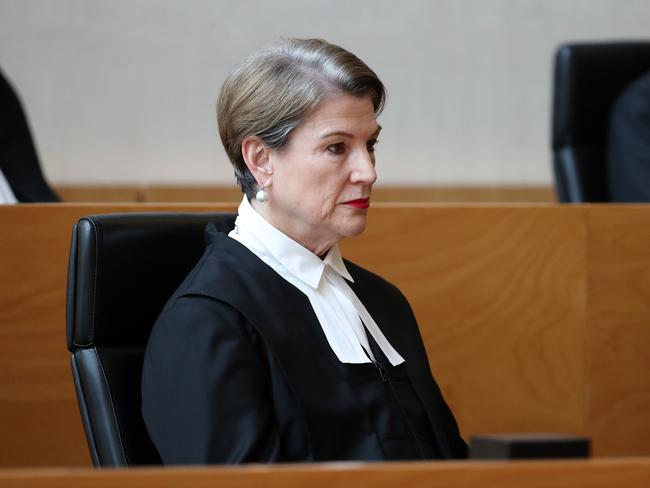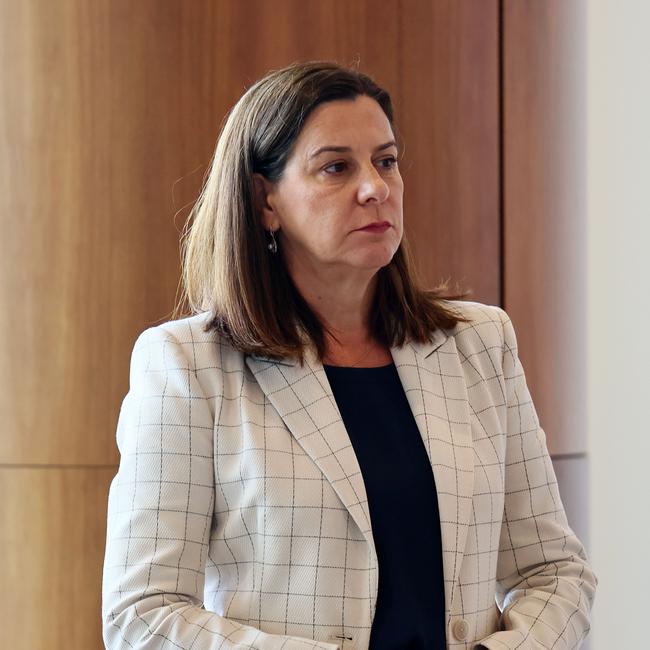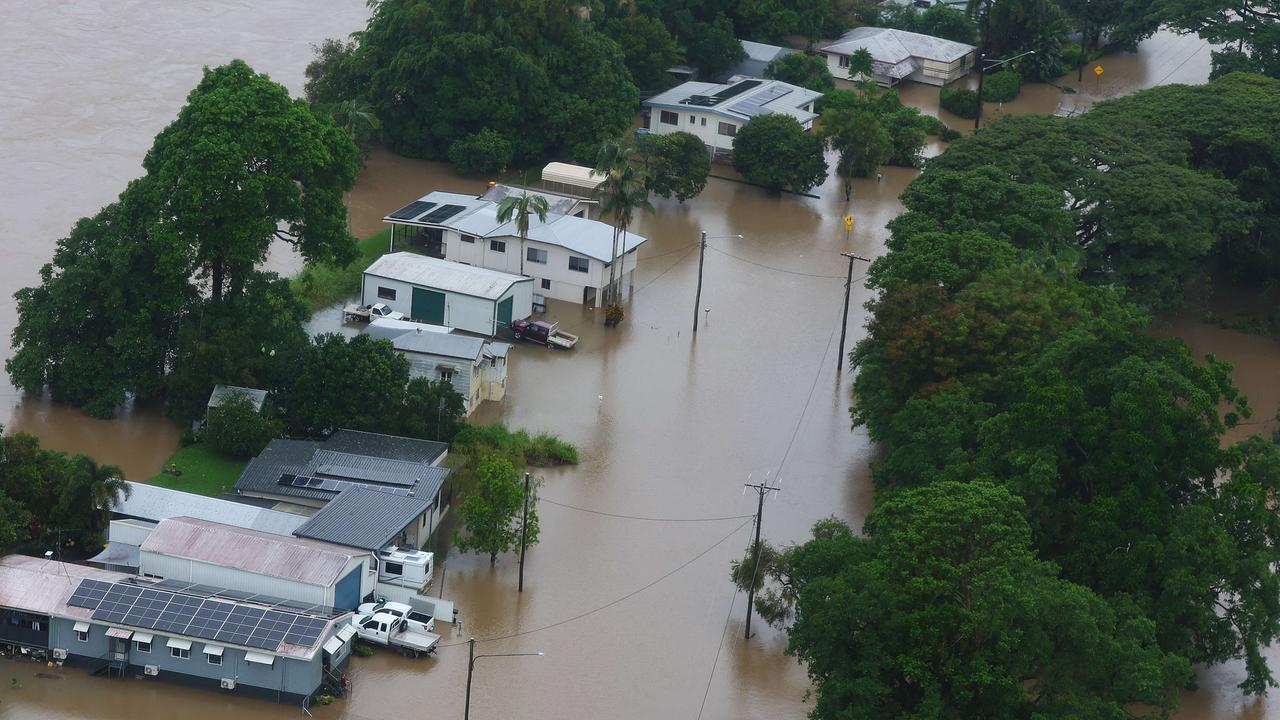Queensland Sentencing Advisory Council makes 28 recommendations to sexual assault laws
‘Good character’ evidence should be limited and a new aggravating factor for rape and sexual assault offences against children introduced, a new report has recommended. THE RECOMMENDATIONS

QLD News
Don't miss out on the headlines from QLD News. Followed categories will be added to My News.
‘Good character’ evidence should be limited and a new aggravating factor for rape and sexual assault offences against children introduced, a new report has recommended.
Queensland Sentencing Advisory Council on Wednesday made 28 critical recommendations to the government on how to improve sentencing outcomes for victim survivors of sexual assault.
The Sentencing of Sexual Assault and Rape: The Ripple Effect – Final Report, states that urgent reform should be considered when it comes to the use of ‘good character’ evidence.
“It can be particularly galling to a victim survivor to hear at the time of the sentence that the person who perpetrated sexual harm on them is otherwise a ‘good guy’, a ‘great father’ or a model employee of citizen,” the report states.
“It is even more upsetting when these statements are refereed to uncritically by the sentencing judge and magistrate – even if in practice they may be given little weight.”

The report found that ‘good character’ evidence was referred to in 91.6 per cent of cases between July 2022 and June 2023.
“A character reference was used in over one-third of cases (35.9 per cent) and was most commonly provided by a family member,” the report states.
“‘Good character’ appeared to be given ‘a lot of weight’ in over a quarter of cases (28.2 per cent).
“The councils review of sentencing remarks suggests that evidence of ‘good character’ is commonly referred to and whether it is mitigating, appears to be used in court to determine the person’s prospects of rehabilitation and risk of offending.”
The report also recommended a new aggravating factor for offences against children under 18 years be introduced.
“We consider that this is the best way to explicitly acknowledge that a victim under 18 years is more vulnerable, the perpetrator more culpable, is to require a court to treat as aggravating the fact that an offence of rape or sexual assault was committed in relation to a child’,” the report states.

Council Chair, the Honourable Ann Lyons AM, said the report was the result of a 19-month investigation that involved extensive research, analysis of data, case law, and legislation, and significant consultation with stakeholders.
“To gain a deeper understanding of their experiences and perspectives, we engaged with victim survivors, advocates and experts,” Ms Lyons said.
“Our findings revealed that current sentencing practices for sexual assault and rape do not adequately address the needs of victim survivors or align with community expectations.
“Sexual assault and rape are often hidden, underreported, and misunderstood, leaving many in the dark.
“This report aims to shine a light on the issue, providing crucial insights that can inform better decision-making.
“I am confident that this report will serve as a valuable resource for policymakers and practitioners in Queensland and beyond, shaping a more informed and effective response across Australia.”

Council Deputy Chair and Project Sponsor Professor Elena Marchetti said that these measures aim to strengthen the law and send a clear message that sexual violence should not be tolerated.
“A new aggravating factor would require courts to consider rape and sexual assault offences committed against children as more serious forms of offending, supporting higher sentences,” Professor Marchetti explained.
Regarding the use of ‘good character’ evidence, Professor Marchetti said the report recommended limiting its use to specific, relevant circumstances.
“Its use should be limited, and courts should be allowed to disregard it altogether as a basis for reducing the sentence,” she said.
The final report was submitted to the Attorney-General and Minister for Justice and Minister for Integrity Deb Frecklington late last year.
Ms Marchetti said the report addressed the “inadequacy of penalties for rape especially when perpetrated against children”.
“It was felt that in some cases there is insufficient recognition of the significant harm caused by both sexual assault and rape,” she said.

“Unlike many other violent crimes the harm inflicted is often psychological instead of physical but no less impactful. In fact many victim survivors said that it changed almost every part of their lives from how safe they feel and their self-worth to their ability to work, make friends and keep personal relationships.”
Ms Marchetti said victim survivors often said their experience felt like a “life sentence”.
“The impact of sexual offending on children is even more profound,” she said.
Speaking about ‘good character’ evidence in court, Ms Marchetti said: “Suggestions that the person’s actions were uncharacteristic or a temporary lapse in judgement can further undermine the victim survivors’ experience and hinder the offender’s genuine acceptance of responsibility for their actions and the profound harm they have caused”.
“For this reason it is our recommendation that some types of good character evidence for sexual offences be restricted with courts also given discretion to give it no mitigating weight at all.”
Asked about teachers and coaches who are charged with sexual offences against children, Ms Marchetti said: “A lot of the time people aren’t aware of a person’s true character”.
“Because a lot of the portrayal of a person in those situations is about grooming children and family members as well.”
The 26 recommendations
1. Sentencing guidance reforms – new aggravating factor for offences against children under 18 years
2. Recognition of victim harm in the sentencing purposes
3. Review of section 9 of the Penalties and Sentences Act 1992
4. Structure of the offence of sexual assault (Criminal Code (QLD) s 352)
5. Reforms to the use of ‘good character’ evidence
6. Resources for courts and legal practitioners
7. Monitoring the impacts of the recommended reforms
8. Reforms to community-based sentencing orders and parole options
9. Access to programs for prisoners on remand
10. Reforms to Serious Violent Offences Scheme
11. Legal Aid funding and guidelines in support of the preparation of specialist reports
12. Court-ordered professional reports and advice
13. Cultural reports
14. Office of the Director of Public Prosecutions and Queensland Police Service – improved communication with victim survivors of rape sexual assault
15. Sentencing remarks for victim survivors
16. Improving support for victim survivors of rape and sexual assault and the criminal justice system’s capacity to respond to victim survivors and perpetrators of sexual violence
17. Resources to assist the courts to respond to the needs of victim survivors of rape and sexual assault with the courtroom
18. Resources and professional development for judicial officers
19. Resources for prosecutors
20. Resources for defence practitioners
21. Comprehensive review of the victim impact statement regime
22. Clarification surrounding the roles and responsibilities of agencies with respect to the preparation of victim impact statement
23. Amendment to section 179K(5) of the Penalties and Sentences Act 1992 (Qld)
24. Review of guilty plea discounts
25. Adult restorative justice program
26. Alternative and complementary justice approaches
27. Improved administrative data surrounding suspended imprisonment sentences and the evaluation of the effectiveness of parole
28. Improving the evidence base for sentencing reform
Originally published as Queensland Sentencing Advisory Council makes 28 recommendations to sexual assault laws


